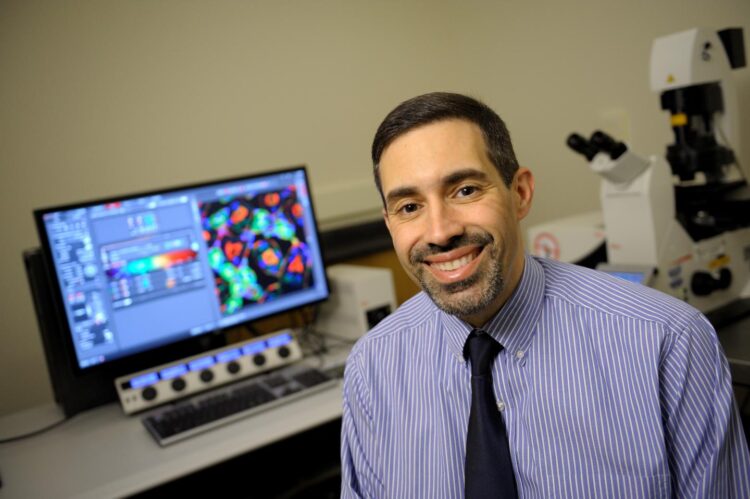A team of neuroscientists at the Beckman Institute for Advanced Science and Technology discovered a new neuronal circuit that may help control which sensory information is relayed to the auditory cortex
A team of neuroscientists at the Beckman Institute for Advanced Science and Technology led by Baher Ibrahim and Dr. Daniel Llano published a study in eLife that furthers our understanding of how the brain perceives everyday sensory inputs.
“There is a traditional idea that the way that we experience the world is sort of like a movie being played on a projector. All the sensory information that is coming in is being played on our cerebral cortex and that’s how we see things and hear things,” said Llano, a Beckman researcher and associate professor in the Department of Molecular and Integrative Physiology at the University of Illinois Urbana-Champaign.
However, quite a few studies over the years have challenged this traditional view of how we perceive the world. These studies present a new model: rather than projecting information onto the cortex, the thalamus might be selecting information that is already present in the cortex, based on our learned experiences.
Using a unique mouse brain slice that retains connectivity between three different regions of the brain (midbrain, thalamus, and cortex), Ibrahim and colleagues conducted a series of experiments that involved complicated techniques like electrophysiology, optogenetics, and computer modeling.
Ibrahim discerned that the neurons controlling which signals are relayed to the cortex are cortico-thalamic neurons that act through the thalamic reticular nucleus. These neurons descend from the cortex to the thalamus, making up a population of neurons that is not often talked about, but is nevertheless responsible for controlling what information is relayed to the cortex.
“Prior to us doing this particular study, other studies were showing the presence of these non-linear responses in the cortex in other sensory systems, like the visual system. Therefore, I suspect that what we discovered in the auditory system might be a generic mechanism that would be seen across sensory systems with the exception of olfaction,” said Llano.
“Learning how to perform all these techniques correctly and efficiently to get reliable data was the most challenging part of this study,” added Ibrahim.
Ibrahim, a postdoctoral research associate in Llano’s lab, came from a pharmacological scientific background and was not previously trained in performing electrophysiological techniques. This posed unique challenges.
The study ultimately begs the question as to whether everyday sensory perception is a mixture of the internal models of the world that our brain is selecting based on cognitive demand and the input streams flowing from the outside world. This would be a very different way of understanding sensory perception as opposed to what is traditionally taught. Clarity of such concepts is fundamental to understanding situations where these processes of perceptions go awry, namely hallucinations.
The Beckman Institute’s recent acquisition of a state-of-the-art multiphoton microscope renders a wide array of possibilities for moving this study forward. This microscope will allow scientists to image the living brain at the cellular level. This will allow Llano and colleagues to study the cerebral cortex of living animals at the cellular level, further allowing them to study hundreds of neurons at a time, and silence specific subpopulations of neurons and see how the responses change.
This study is another step towards understanding the infinitely complex organ that is our brain.
###
Editor’s notes:
To reach Dan Llano, call 217-244-0740 or email [email protected]
To reach Baher Ibrahim, call 318-680-6962 or email
[email protected]
The paper “Corticothalamic gating of population auditory thalamocortical transmission in mouse” is available online at https:/
Media Contact
Jenna Kurtzweil
[email protected]
Original Source
https:/
Related Journal Article
http://dx.





